The tricky part of allowing players to spend time away from New Zealand is integrating them when they return. That much has become apparent in the last month.
It’s not as easy as everyone imagined for elite players to nip off to Japan for a season or two and slot right in the moment they come back.
What the last month or so has demonstrated is that time in Japan – because that is the destination of choice these days for those intent to get away from New Zealand for a bit – has no consistent impact, or demonstrable trend to provide any ability to apply uniform expectations about what it will do to an individual’s game readiness once they return.
The evidence so far weighs against making generalisations or assuming anything about those players who spend time in Japan.
Take the examples of Beauden Barrett and Brodie Retallick – both of whom are trying to assimilate into test football after respectively spending one and two seasons in Japan.
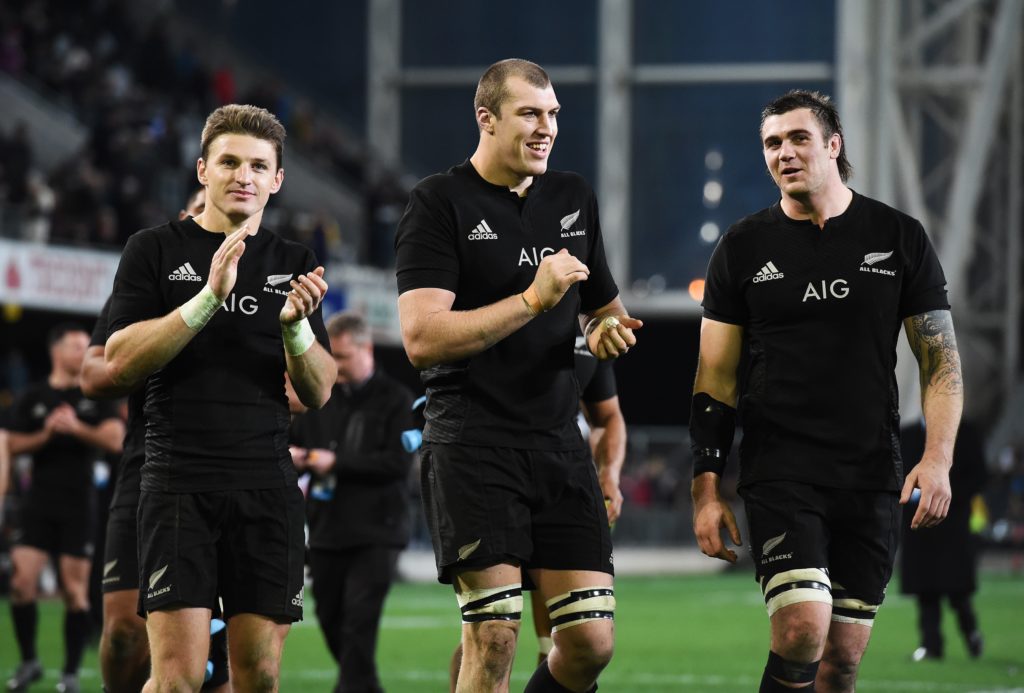
The underlying assumption was that it would be easier for Barrett to re-adjust to the speed and intensity of rugby in New Zealand – and not just because he spent less time in Japan.
The emphasis in Japan is heavily on aerobic training. The games there tend to be less physical, but quick. As Barrett is an aerobic athlete and his game is built on his running, it made sense to believe that the environment he encountered at Suntory would suit him perfectly – that less contact and more running would sharpen his best features and see him return to New Zealand niggle free, fitter than he’d ever been and razor-sharp. Which was largely the case.
Retallick, as a bruising second row, was predicted to be taking the greater risk as his return seemed destined to be more difficult. While his body needed time to recover from the pounding it had taken between 2012 and 2019, the danger was that so much aerobic training would strip him of much-needed bulk.
There were also concerns that the faster, less physical nature of the contests over there would leave him out of touch to the physical realities of test rugby. Again, there was truth to some of that prediction, as he came back to New Zealand at 117kg, down from 123kg.
The test against Fiji in Dunedin was Barrett’s big opportunity to stake his claim to the No 10 jersey he so covets. But he wasn’t able to demonstrate the requisite speed of thought and movement to be the kind of influence he needed to be.
Mostly it was assumed it would take Retallick longer to find his feet at test level than Barrett, and yet that arguably didn’t prove to be the case.
Barrett appeared for 25 minutes off the bench against Tonga in Auckland and while he was fully committed, his accuracy was missing. “I won’t tell you what number out of 10 I gave him,” said All Blacks coach Ian Foster ahead of the next test, for which he picked Barrett to start.
The test against Fiji in Dunedin was Barrett’s big opportunity to stake his claim to the No 10 jersey he so covets. But he wasn’t able to demonstrate the requisite speed of thought and movement to be the kind of influence he needed to be.
Some of that may have been due to suffering a nasty cut to his eye early in the game – which came after he had endured a heavy knock in training a few days earlier. But so too was his reticence to go to the line and ability to command the field partly down to not having had his instincts honed during Super Rugby.
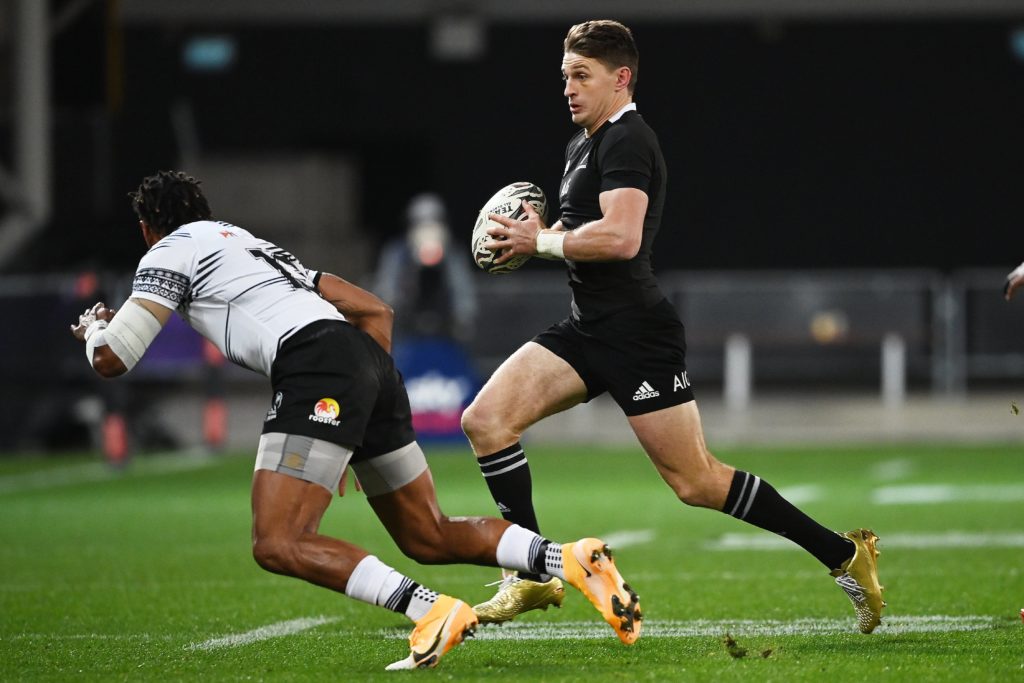
That’s why when the team to play Fiji in Hamilton the following week was named, Richie Mo’unga had the No 10 jersey.
“I’d give Richie the points, based on the first two games,” said Foster. “But, to be fair, we always expected that.
“I thought Beaudy [last weekend] made a lot of really good decisions, I thought his instincts were probably just a fraction off.
“And that’s why we’re keen to keep playing him and get him more and more time. But I was really impressed with a lot of his game management in that game.
“He’s not far off where we need him to be. He took a couple of pretty big face knocks, and I thought it just maybe dampened his desire to go to the line quite as hard as what we know he can.”
Physicality is a mindset rather than a physical strength or ability. I guess if the mind is hungry then it shouldn’t be a problem.
Brodie Retallick on his return to test rugby
Retallick played 80 minutes in Dunedin and while it wasn’t by any means his greatest test, he played well enough. He looked like Retallick for most of the game, bar a few moments where he wasn’t quite where he needed to be.
But he produced another solid 30 minutes in Hamilton off the bench and the expectation is that he will start against the Wallabies on August 7. Retallick has settled quicker than Barrett and that may be because the former had such a good grip on what his assimilation challenge would look like.
“Physicality is a mindset rather than a physical strength or ability,” he said a few weeks before the Pasifika Series kicked off. “I guess if the mind is hungry then it shouldn’t be a problem.”
The respective situations of Barrett and Retallick provide Foster with foundation data on how he handles the integration of other players who follow a similar path – starting with TJ Perenara.
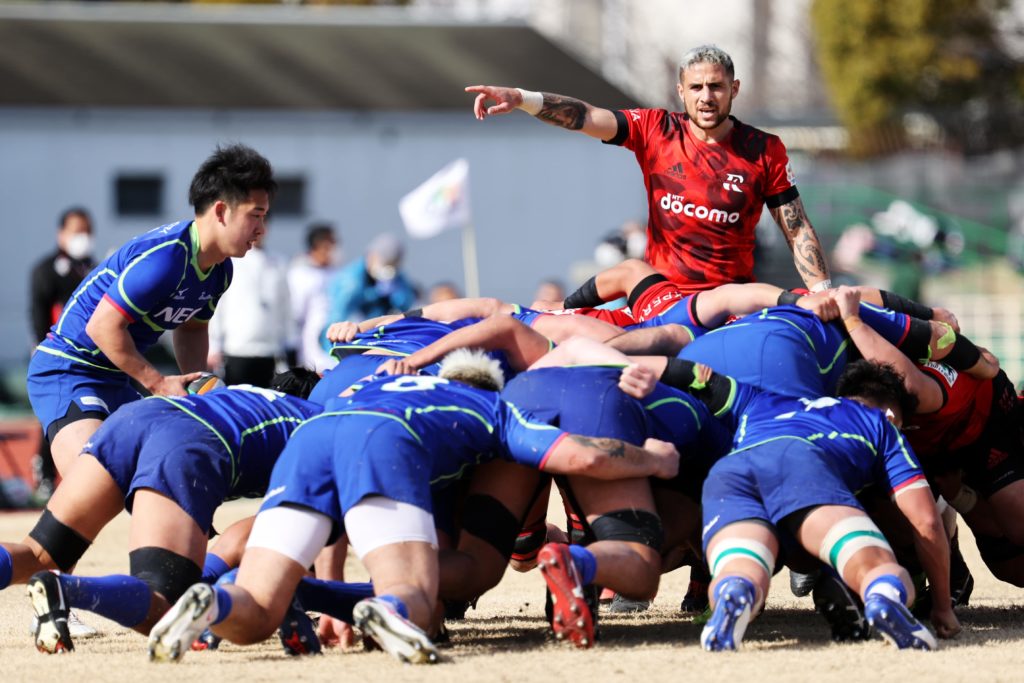
The Hurricanes halfback also spent the 2021 club season in Japan, except he didn’t do so as part of a pre-agreed longer-term contract the way Barrett and Retallick did. He was off-contract with NZR when he left and signed a new, two-year deal in mid-April, meaning he only became eligible for the Rugby Championship.
In his absence, Finlay Christie came into the squad as the third halfback and played well and so that has compounded the issue on what is the right way and right time for Foster to look at reintroducing Perenara – a player with enormous experience and ability.
Perenara has been named in the Rugby Championship squad, with Christie remaining to provide cover while, presumably, Foster finds ways to match condition the Hurricanes No 9.
That assimilation plan will form in the next month or so says Foster. Perenara came home aerobically supercharged and relatively fresh given the lower volumes of rugby he played in Japan compared with what he would have faced in Super Rugby.
But the tricky part of coming home at this time of year is that it’s hard to find him meaningful rugby to prove his form as club seasons are finishing and the provincial championship is a few weeks off starting.
We have found that the guys that come back from Japan take just a little bit of time to get back up to the level that we want.
All Blacks coach Ian Foster
Foster knows he has a great athlete in Perenara but he can’t be sure how sharp the halfback is in terms of skill execution and reading the game.
“When he went to Japan, he had a clear focus from us,” Foster said when he named Perenara in the Rugby Championship squad.
“The good thing about a halfback going to Japan is that we want our halfbacks fast to the ruck … we monitored his progress over there and were pretty pleased with what we saw in that space. We know he’s a confrontational nine, a tough defender, he’s good over the ball, he’s ultra-competitive, so he’s done that for us for a long long time.
“We have found that the guys that come back from Japan take just a little bit of time to get back up to the level that we want. Hence the likelihood is that we’ll use the Wellington NPC team for a week or two for that.”
Again, what makes this situation interesting is that it is unlikely to be the only time it happens.
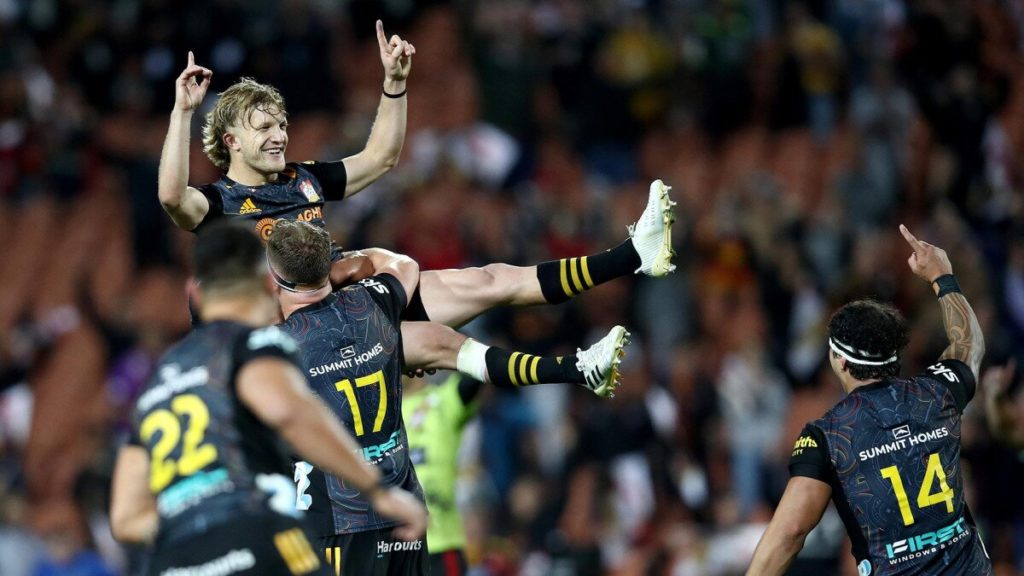
Damian McKenzie is contemplating doing a similar thing at the end of this year – where he will sign with a Japanese club and then back himself to negotiate a contract with NZR while he is offshore.
If he does this – it will put him in the same boat as Perenara where he will be ineligible for Super Rugby or the series against Ireland, but back in the frame for the Rugby Championship.
As a smaller, outside back whose game is built on speed and agility, Japan should suit him perfectly and it flows towards the assumption he’ll find it relatively easy to quickly find his best form when he returns.
If Foster and his coaching team wanted to delve deeper into the past to see if there any clues lying there about this vexed business, they will see the picture is equally mixed.
But Barrett is the evidence against making that assumption and given the money on offer in Japan, it’s likely that there will be a steady stream of players who head there for one season in the next few years, creating a constant need for the All Blacks coaching team to work out how to best integrate people when they return.
If Foster and his coaching team wanted to delve deeper into the past to see if there any clues lying there about this vexed business, they will see the picture is equally mixed.
Dan Carter went to Perpignan for six months in January 2009 at the end of a long 2008 season that saw him win Super Rugby with the Crusaders and play in 15 All Blacks tests.
The plan was for him to return to New Zealand in late May, take a month off before becoming immediately eligible for the Tri-Nations.
He was trying to play two full years of rugby without a break which is maybe why, just four games after arriving in France, he seriously damaged his Achilles and was ruled out for five months.
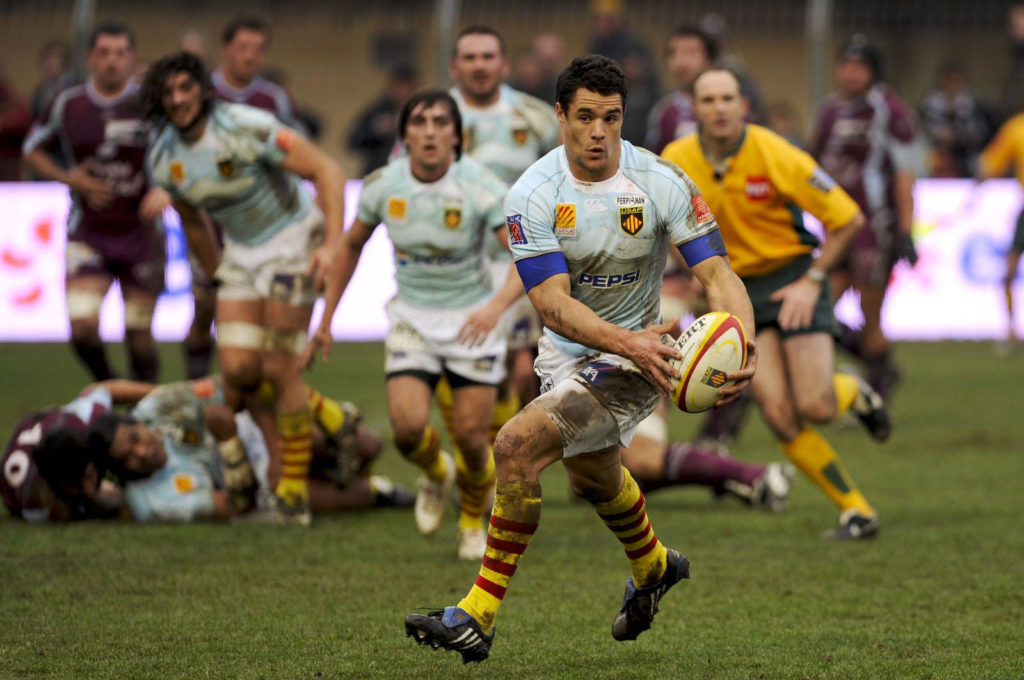
The injury was arguably a blessing as it strangely meant Carter arrived back on New Zealand in better shape than he likely would have had he played the intended 16 games in France.
His integration plan also became easier – he would play a club game for Southbridge once he had the green light and then turn out for Canterbury, before likely re-joining the All Blacks for their Bledisloe clash in Sydney.
Carter took a few games to really find his feet again, but that was related to such a prolonged period of not playing any rugby, rather than having to adapt to the pace and intensity of Southern Hemisphere football after spending six full months exposed to the game in the North.
As a telling comparison, Luke McAlister, who had been an All Black between 2005 and 2007, before joining Sale when he was just 24, also returned to New Zealand in the Southern winter of 2009.
He was bigger, but not necessarily more physical and the pace of rugby south of the equator as well as the demand on micro skills to be razor-sharp appeared beyond him.
McAlister had lit up European rugby and hence that’s why the All Blacks had enticed him home and even negotiated an exemption so he could be immediately available.
He was rushed into the All Blacks squad to play Italy in June that year and stayed in the group for the remainder of the season.
But it was a curious decision on the part of the selectors as McAlister never convinced that he was the exciting player he’d been before he’d left.
He was bigger, but not necessarily more physical and the pace of rugby south of the equator as well as the demand on micro skills to be razor-sharp appeared beyond him.
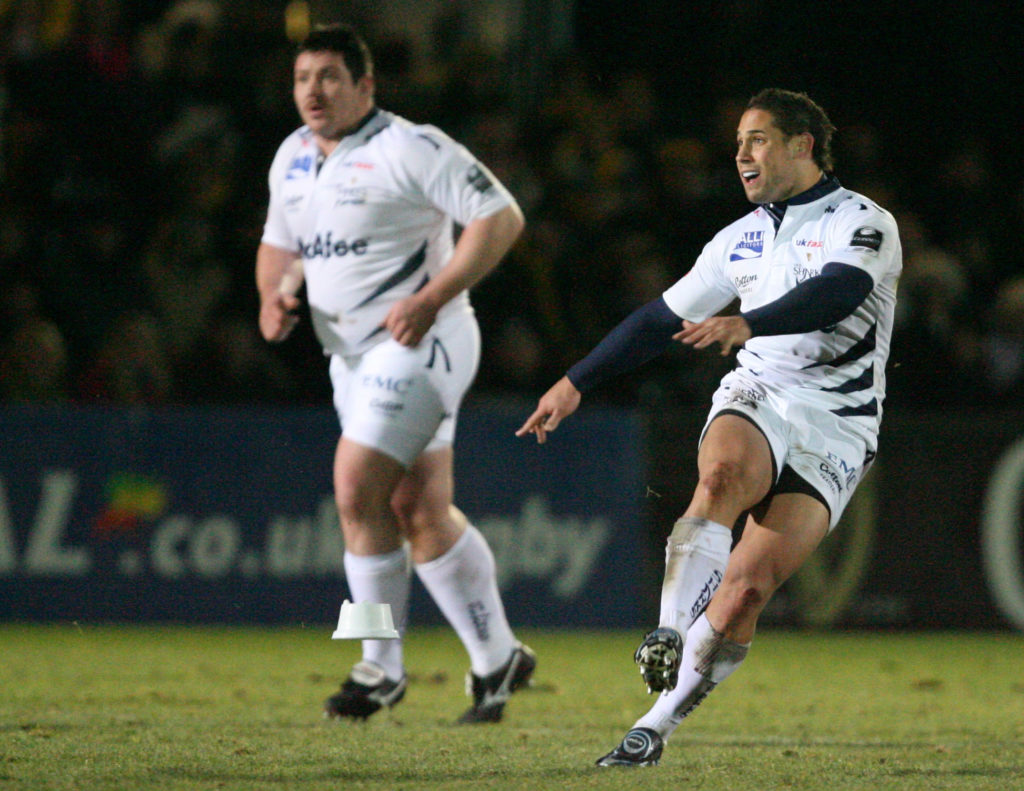
The almost three seasons he had spent in Manchester had equipped him to play European club rugby, but he was something of a fish out of water back in New Zealand.
Tamati Ellison and Brad Thorn were able to come home after respective stints in Japan and the NRL as better players. Jerome Kaino is another who left New Zealand in 2012 as a world class All Black and came back after two seasons in Japan as a world class All Black.
It is, then, an entirely hit and miss business as to whether leading All Blacks can take time out elsewhere and resume where they left off.
Kaino did it, but a bit like Carter, much of his time away was spent recuperating from major surgery rather than playing. He also returned to New Zealand in February 2014, which meant he could build his way back to form slowly through Super Rugby.
And that’s what makes the current situation so interesting.


Comments
Join free and tell us what you really think!
Sign up for free